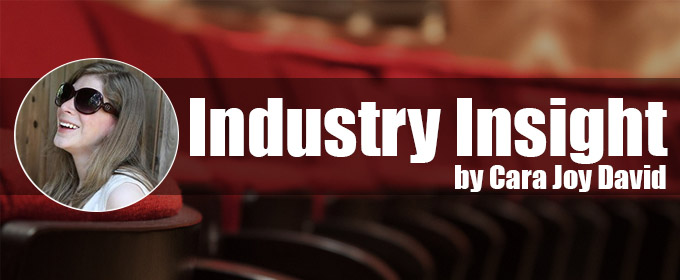Inside the Fight for Adult Dancers to Join Actors' Equity
The Star Garden Topless Dive Bar dancers are seeking representation from Actors’ Equity.
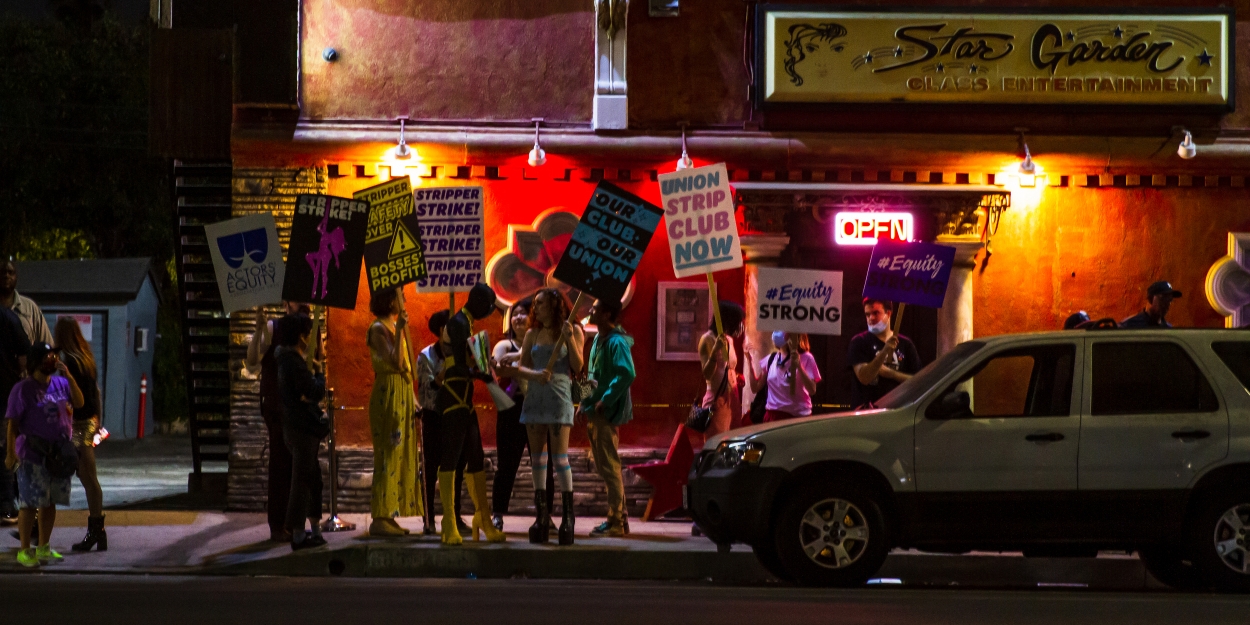
In August, when Actors' Equity first announced it was seeking to represent adult dancers (aka strippers) at a California night club, many members expressed displeasure on social media.
"I have nothing in common with a stripper, I'm a professional dancer," one noted, adding they put in countless years of dance training as a child to gain that title, whereas "stripper class for little kids" was absent from any offered curriculum.
Another wrote: "Do these women need protection? I'm sure they do. Should that protection come from Actors' Equity? Hell no."
Others took the opportunity to voice several complaints against Equity and wondered why Equity was not prioritizing these issues before unionizing people in "a different field."
It was a lot. And Actors' Equity leadership heard it all. It didn't alter their course, but they heard it.
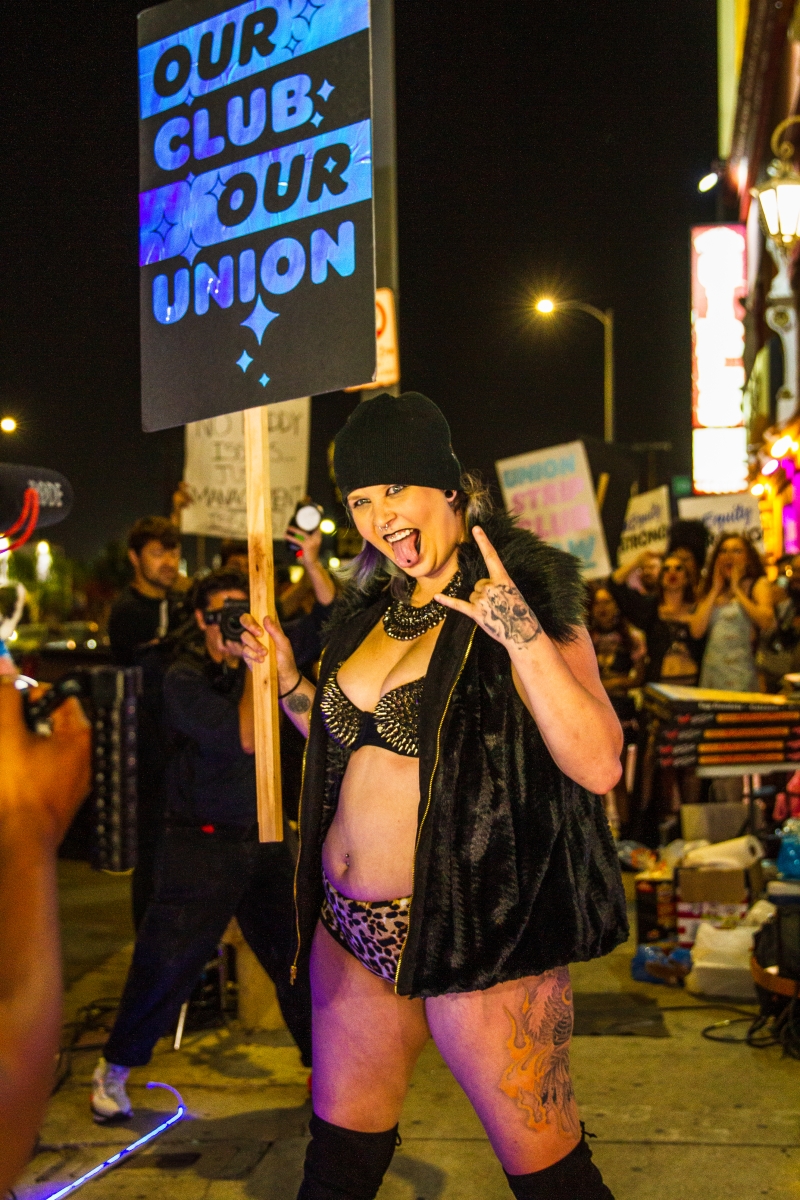 "I think everybody has a different journey of what brings them into the union," Stef Frey, Director of Organization and Mobilization for Actors' Equity, said in an interview. "Some people do see it as more of a status versus like them owning their worker power, which is what we need more of. So I think the folks who see Equity as a status struggle with [the decision]."
"I think everybody has a different journey of what brings them into the union," Stef Frey, Director of Organization and Mobilization for Actors' Equity, said in an interview. "Some people do see it as more of a status versus like them owning their worker power, which is what we need more of. So I think the folks who see Equity as a status struggle with [the decision]."
But these folks may have to get used to it -- the Star Garden Topless Dive Bar dancers were the first in what Equity hopes will be a long line of announcements focusing on the representation of individuals for work that does not take place on a traditional legit stage. The planetarium lecturers at Griffith Observatory is another group that Equity announced they are organizing. Equity President Kate Shindle told BroadwayWorld that talks are underway to unionize certain actors who are doing what is called "standardized patient" work -- taking on characteristics of real patients in training programs for medical professionals. Shindle said that in these cases Equity members were previously filling these roles in a non-Equity capacity.
"There's an Equity member who goes to Equity auditions working at Star Garden when she is not on strike or locked out," Shindle stated. "Our industry heaps awards and accolades on these types of stories -- my first Broadway show, I played a sex worker. I've done GYPSY. I know we have all kinds of nightclub/burlesque/sex work type stories that we have showered with praise. So when a group of workers comes to me and says, 'I would like similar protections to what you got when you were pretending to do my work,' I feel compelled to listen to that."
Equity has always been somewhat open to taking on new workplaces -- for example, the unionization of performers at American Girl Place in midtown Manhattan -- but this last slew is part of a shift for the union. Frey and new Executive Director Alvin Vincent, Jr. come from unions that were more gung-ho on organizing. They've brought that spirit with them to their Equity jobs.
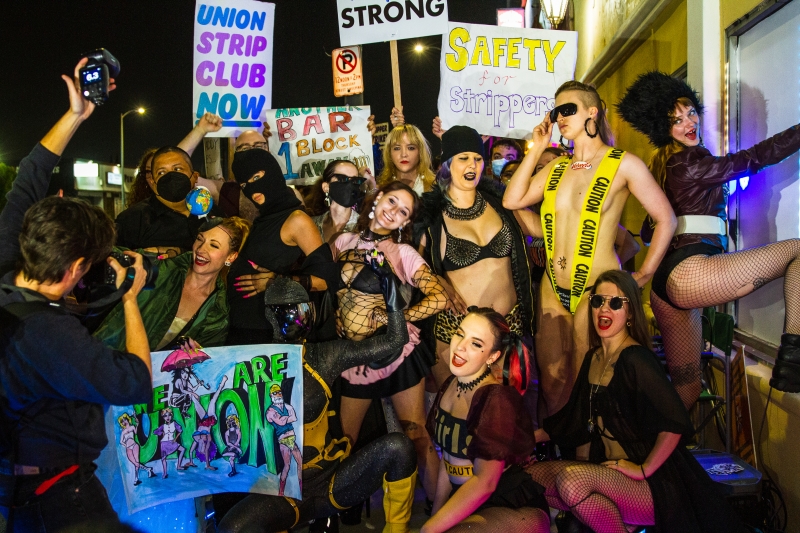
But not everyone who contacts Equity is suitable for Equity representation. Frey, who is on the front line of going through the requests, said she considers three major things when deciding whether to consider a group of workers for Equity: First, broadly, is whether Equity is "properly equipped to support the workers," in other words, whether its contracts are a good fit, whether its leaders have the required training, etcetera. Second, whether there is any chance to win the unionization campaign. Third, whether there is another union better equipped to handle the work. (For the Star Garden dancers, people questioned whether American Guild of Variety Artists or the International Entertainment Adult Union would have been better unions, but Frey believes the entertainment unions have significant overlap and the third factor did not sway her in that particular instance.)
"I think we fundamentally view ourselves as representing a community of performers and stage managers working for a live audience," Shindle said, noting that those people deserve protection no matter where they work.
In terms of the criticism, Shindle stated she did not believe the unionization of these new workplaces caused any harm to current members, and in fact believes members might be helped by the new efforts.
"It doesn't have to be a zero sum game," she said. "In fact, unions are the opposite of a zero sum game in many ways, in that the more workers who are represented by a union the more leverage the union has to either grow or strengthen contracts, etcetera."
Frey also said the press from the Star Garden unionization petition -- which was recently approved by the National Labor Relations Board -- has educated Equity members about the possibility that their side gigs could be presented by a union. Some of those members have reached out to Equity and there has also been greater outsider interest in the union.
"The biggest hurdle that we have ahead of us is just educating entertainment workers that this is actually an option: it's not just the employer that designates whether it's union or not," Frey said.
For Shindle, Equity is simply doing what many unions are -- leaning into the notion that more workers deserve representation. (In the entertainment field, see, for example, SAG-AFTRA now representing influencers.) But several actors spoken to for this piece were still not thrilled with the move, even when presented with the various arguments offered by Shindle and Frey.
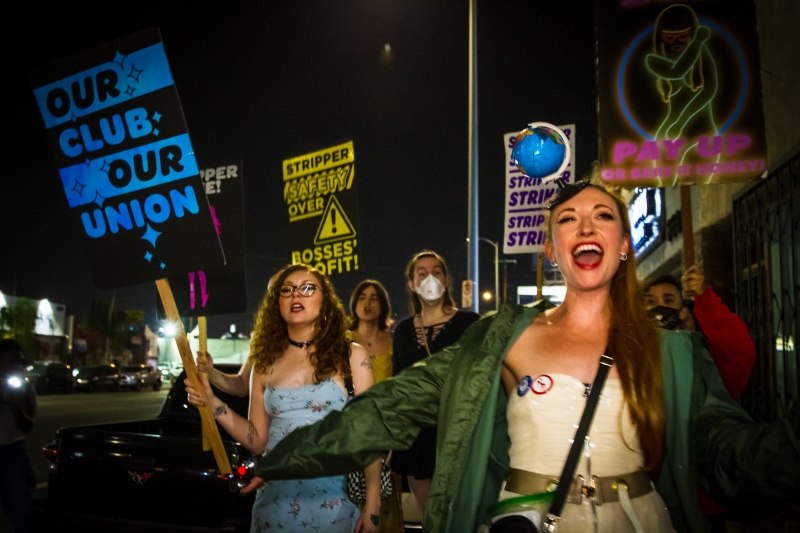
"I hear what they are saying, but this still takes time away from dealing with things current members need to them to deal with," one said.
And Actors' Equity does indeed have things to work on -- it has never been thought of as the strongest union. When explaining why she gave up her Equity card, Patti LuPone called Equity the "worst union" in People Magazine. Even those that would not go that far questioned why the dancers couldn't find a better union.
But snarky comments about Equity aside, these groups came to Equity, so they must have thought there was some benefit to being represented by this particular union.
"There are still lots and lots of people out there who feel obligated to give away their work -- [they feel] that it has primarily cultural or artistic value but not real financial or economic meaning," Shindle explained, adding that Equity was equipped to help them negotiate better agreements that would benefit them financially.
With an eye toward the skeptics, she said: "I don't think it diminishes anyone's art for a union to want to represent more workers and protect them in their workplace."
Photo Credit: Aaron Proctor/Courtesy of Actors' Equity Association

Videos


